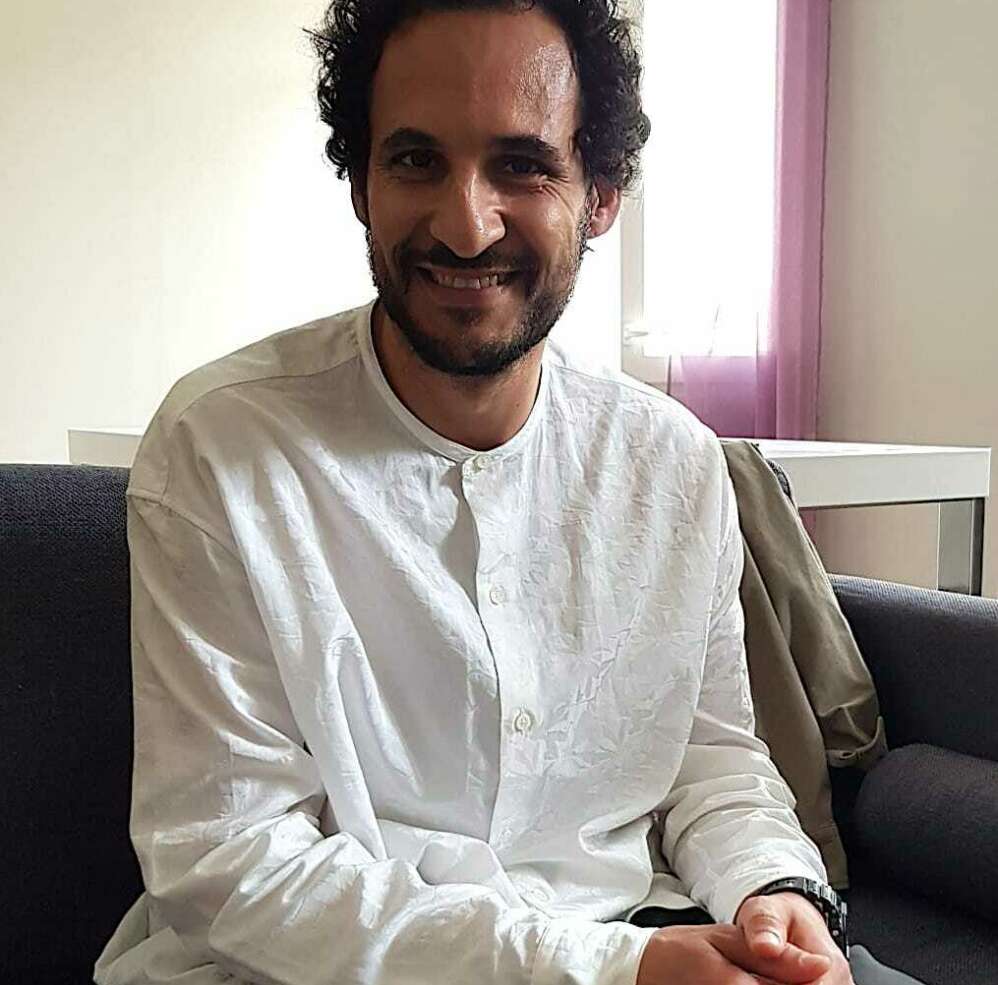WRITTEN BY: Annika Pham
At mid-Cannes, Holy Spider was one of the most talked about movies, splitting reviewers. For Abbasi his goal was to show a reality about Iran rarely shown on screens.

At mid-Cannes, Holy Spider was one of the most talked about movies, splitting reviewers. For Abbasi his goal was to show a reality about Iran rarely shown on screens.
Eagerly awaited on the Croisette four years after Border which won the Un Certain Regard Prize, Abbasi’s Danish film Holy Spider created the kind of sparks and talks on the Croisette that a certain Lars von Trier used to attract.
At the official screening on Sunday, the film received a 7-minute standing ovation, but also a few walk outs, due to the graphic violence.
Perhaps not enough, for Abbasi who during a press round table on Monday, commented defiantly: “When we had the screening of Border, it was rowdy, people left - here [at the official screening] the atmosphere was more sober. I’m disappointed no one shouted! he said before adding: “Honestly I don’t care so much about what you [the press] write. I’m just happy this movie exists. My mission was to add this movie to Iranian cinema, and deconstruct this strange reality that has existed for the past 50 years,” said Abbasi. The latter is critical of the way Iranian films have-in his eyes, adhered for decades to the local censorship’s set of unwritten rules, and depicted what he calls “an altered reality“ of women and society as a whole. “Showing women sleeping with clothes on, but never giving birth, or having sex, or even going to the toilets, has somehow been accepted,” said the director who left his native country in his 20s to study architecture in Stockholm, before turning to filmmaking at the Danish film school and settling in Denmark.
Zar Amir Ebrahimi who plays the title role of female journalist Rahimi, praises Abbasi’s boldness. “Ali has made a real movie about Iran. Everything is true - including prostitution; he shows the real side of Iran and takes side with women’s plight.”
Holy Spider uses the prism of the film noir and the true story of a serial killer in Iran, to portray a deep-rooted misogyny in Iranian society. “My intention was not to make a serial killer movie. I wanted to make a movie about a serial killer society,” said Abbasi.
For the script, Abbasi was inspired by a killing spree that occurred in Iran in 2001, when a man killed 16 prostitutes in the holy city of Mashhad, before been arrested and hung. The director became fascinated mostly by the reaction from a small but strong minority of fierce believers and the conservative media, who started to celebrate the killer as a hero for having cleaned the streets of Mashhad from the ‘dirty’ women, thereby fulfilling his religious duty.
In the film, the main protagonist, female journalist Rahimi, travels to the Iranian holy city of Mashhad to investigate a serial killer targeting prostitutes. As she draws closer to exposing his crimes, the opportunity for justice grows harder to attain when the murderer is embraced by many as a hero. Parallel to Rahimi’s investigative work, we follow the killer, Saeed, an Iraq-Iran war veteran and now devoted father and husband, as he embarks on his jihad against vice.
Iranian actress Ebrahimi who plays Rahimi, was a big TV star in Iran in the early 2000, until an explicit video of her's was leaked, forcing her to leave Iran 13 years ago for France.
Speaking to nordicfilmandtvnews, Ebrahimi said she was originally asked to work as a casting director on the film, before being offered the title role. “Ali is talented and at the same time, demanding. He has a good eye for details, so you have to be on your toes,” said the actress who used her own trauma and experience in Iran for her role.
For her, the depiction of Rahimi, striving to do a good job as a journalist while dealing with pressure and rampant sexual harassment, is a very universal story. “It’s true not only in Iran but also in France and everywhere,” said the actress, underlying that the #MeToo movement in Iran was initiated by female journalists.
Abbasi said Ebrahimi’s experience and input on female’s plight in Iran enriched his script.
For the part of Saeed, Abbasi hired the well-known Iranian theatre and movie actor Mehdi Bajestani. The director praised the actor’s courage in accepting this challenging role.
The film was shot in Jordan, which came with its own sets of difficulties such as getting visas for crew members from Iran to Jordan. “It was an ordeal as Jordanians see Iranians as some kind of spies. We are their worst enemy”, said Abbasi.
Shooting in Jordan and recreating the holy city of Mashhad was actually beneficial for the artistic process, says the director, as this forced him to create his own version of the city and its underbelly. “The L.A. in [Roman Polanski’s] Chinatown was a mental space-that city depicted exists nowhere else than in that movie-it’s the same with Mashhad for me,” said Abbasi.
Comparing himself to Tarik Saleh who was obliged to relocate his Cairo-set story of Boy from Heaven to Turkey, also for political reasons, Abbasi said both films are international, for a wide audience, although produced from Scandinavia, with a strong identity and shot in a non-Scandinavian language.
SEE THE TRAILER
The film was produced by Profile Pictures with Germany’s One Two Films, in co-production with Nordisk Film Production, Wild Bunch International, Film i Väst, Why Not Productions, ZDF/ARTE, ARTE France Cinéma. The release in Denmark via Camera Film is set for this fall.